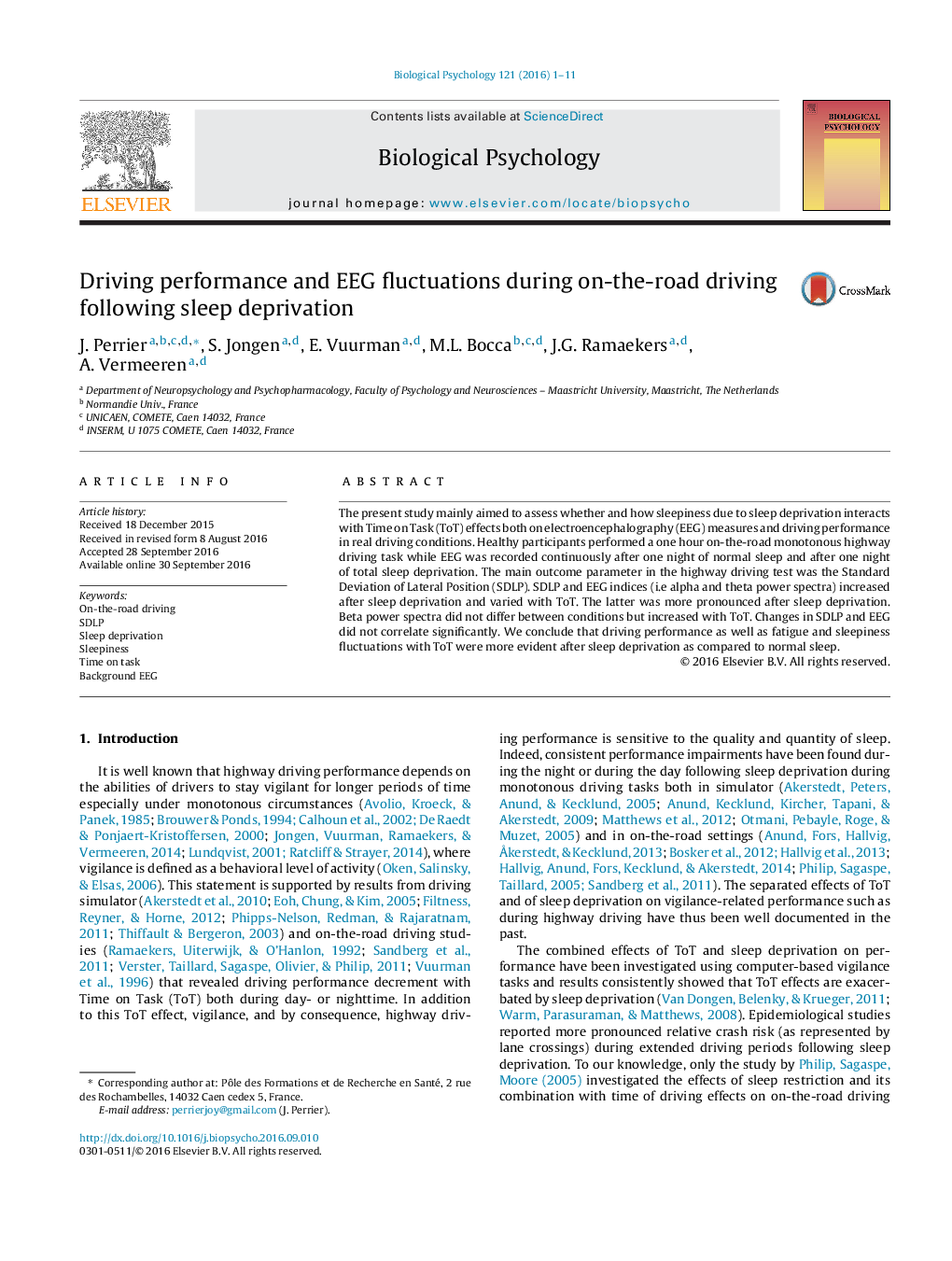| Article ID | Journal | Published Year | Pages | File Type |
|---|---|---|---|---|
| 5040434 | Biological Psychology | 2016 | 11 Pages |
â¢Sleep deprivation and time on task induce real highway driving impairments.â¢Time on task effects during real driving are more evident after sleep deprivation.â¢Time on task effects on theta activity are more evident after sleep deprivation.â¢Electroencephalography is not appropriate to predict on-the-road driving performance.
The present study mainly aimed to assess whether and how sleepiness due to sleep deprivation interacts with Time on Task (ToT) effects both on electroencephalography (EEG) measures and driving performance in real driving conditions. Healthy participants performed a one hour on-the-road monotonous highway driving task while EEG was recorded continuously after one night of normal sleep and after one night of total sleep deprivation. The main outcome parameter in the highway driving test was the Standard Deviation of Lateral Position (SDLP). SDLP and EEG indices (i.e alpha and theta power spectra) increased after sleep deprivation and varied with ToT. The latter was more pronounced after sleep deprivation. Beta power spectra did not differ between conditions but increased with ToT. Changes in SDLP and EEG did not correlate significantly. We conclude that driving performance as well as fatigue and sleepiness fluctuations with ToT were more evident after sleep deprivation as compared to normal sleep.
